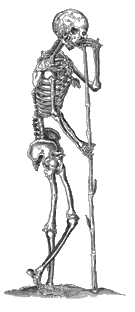




Eligibility and Field School's components
We welcome physical anthropology and archaeology students, future practitioners of forensic sciences as well as anyone interested in mortuary archaeology. The School's program is aimed at both graduates and undergraduates, those who have previous field experience as well as those who don't have any experience at all.
The major component of our School is fieldwork. Students spend at least 6 hours a day in the field learning burial excavation techniques and documentation methods. The site is basically being excavated by the students under the direction and supervision of our staff. The main goal of this approach is to provide you with a real, hands-on experience in recovery of skeletal and incinerated human remains. This is a practical, every day course in burial excavation techniques and we refer to it as to a „Fieldwork”. This component takes at least half of the Field School's time and taking into account various weather conditions in which we work and the character of the work itself it is often very physically demanding but on the other hand rewarding in terms of gained practical, know-how experience.
Another component is laboratory work. Students work in a lab in shifts on a daily basis under the supervision of our staff. Here you learn how to deal with the excavated remains and how to document them in the lab. In other words, after learning how to excavate, you learn what to do with the remains and how to take care of them. It is an essential part of the archaeological process and depends on students’ involvement. Students are responsible for cleaning, labeling, and storing skeletal remains and other artifacts. This is also a place when you learn and practice basic osteological identification. The subject of the analysis changes depending on the material that is coming to the lab from the field on a daily basis. We refer to this laboratory course as „Labwork”.
The third component is formal and informal teaching. We refer to it as „Osteology”. You can find more information about it in the Program and Osteology Syllabi included in the Info Packet 2026. We also provide lectures that cover the history of the site and other topics related to Polish history and/or mortuary archaeology. We don't treat these as a separate course — it is just called the „Afternoon Teaching”. The number and topic of the lectures will vary based on the experts available.
